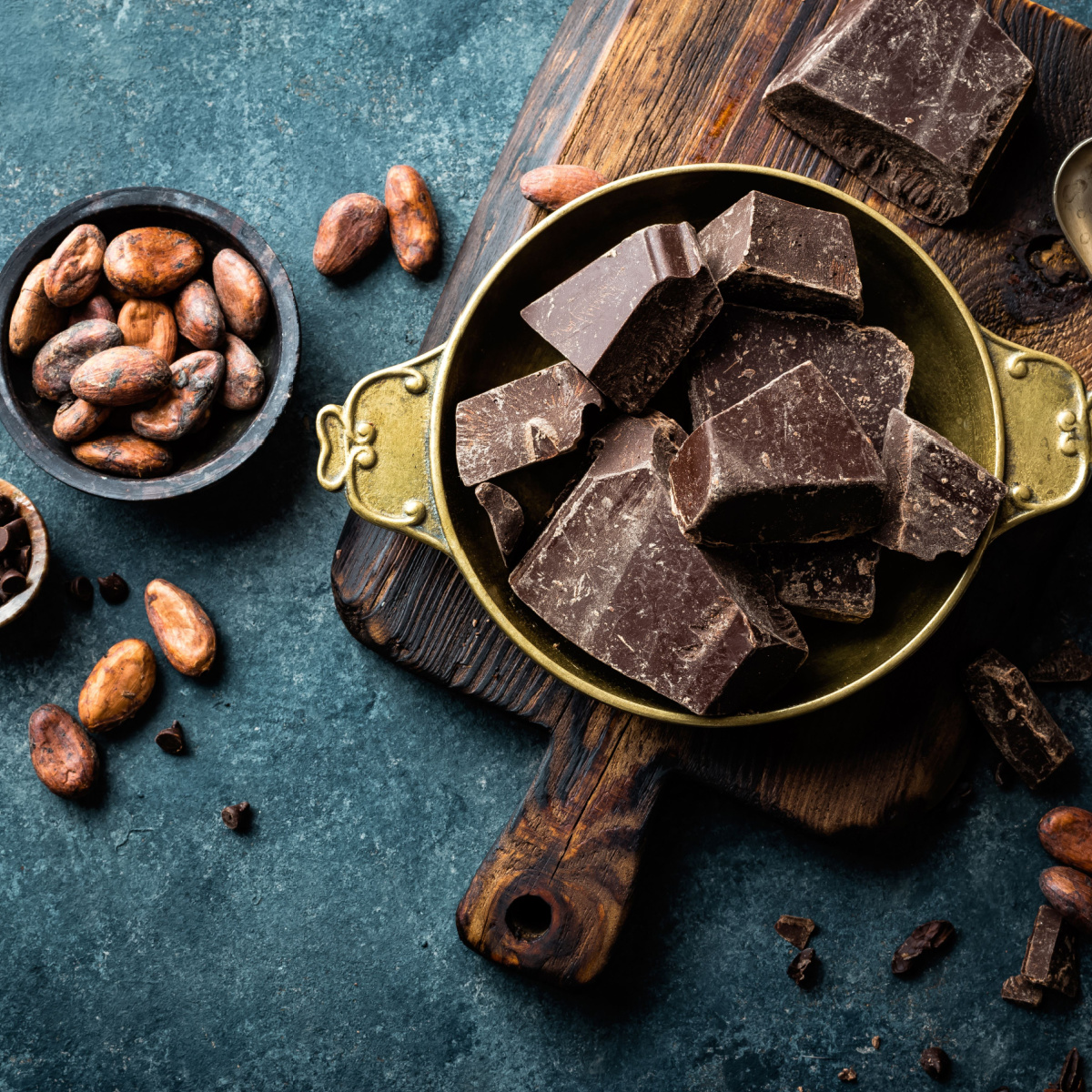
5 Snacks That a Personal Trainer Recommends to Help Lower Stress and Cortisol Levels
1. Dark Chocolate
Hall says dark chocolate is "a perfect snack that doesn't trigger a binge episode." In addition, he notes that the "antioxidants found in the dark chocolate can help you reduce cortisol by lowering inflammation and boosting your mood." Consuming dark chocolate can improve your body's ability to utilize insulin, resulting in decreased insulin levels in the blood and less fat accumulation. Additionally, as Hall points out, dark chocolate can curb your appetite by lowering the levels of the hunger hormone ghrelin.
2. Fatty Fish
If you want "vivid dreams and a good night sleep," Hall says to "get some more salmon, mackerel and sardines into your diet." These Omega-3s will "not only help you sleep better, but they also really good for your heart health." Fatty fish, he explains, enhance feelings of fullness and reduce cravings. They help people stay satisfied longer after meals, which may aid in weight loss. These types of fish can be conveniently prepared into small portions, included in charcuterie boards, and more.
3. Leafy Greens
Hall notes that leafy greens such as spinach, kale and Swiss chard help increase "magnesium, which helps you regulate cortisol and promote relaxation." In addition, he says that the "fiber and nutrients will keep you fuller for longer," and your blood sugar will be "much more stable," as well.
4. Blueberries
Hall explains that blueberries are "not only lower in sugar compared to most fruits, but also packed with vitamin C and antioxidants." He says that these fruits, along with strawberries and raspberries, "will help you reduce cortisol and protect against stress." A cup of blueberries offers 4 grams of fiber, aiding in satiety and helping to curb overeating. Additionally, they are low in calories, containing just 80 per cup.
5. Nuts & Seeds
The last snack Hall recommended choosing is a handful of "nuts and seeds." He explained that "almonds, walnuts and flax seeds are rich in healthy fats, fiber and antioxidants, helping you reduce cortisol and stabilize your blood sugar"
The Bottom Line
To lower cortisol levels through diet, consider consuming a variety of nutritious foods. As Hall explains, you can incorporate anti-inflammatory options like fruits, vegetables, whole grains, lean proteins, and healthy fats. You can also add omega-3-rich items such as fish (anchovies, salmon, tuna), chia seeds, flax seeds, and walnuts. It's also beneficial to opt for foods high in magnesium, such as avocados, bananas, dark chocolate, broccoli, and spinach.


